Disembarking from the train with a panoramic view of the Sydney Opera House and Harbour Bridge, followed by a walk to the Man O’War Steps on a picturesque Friday morning would turn even the most experienced Sydneysider into a wide-eyed tourist.
Our chartered ferry, the Mari Nawi was made even more beautiful with dreamtime stories of the Birrabirragal as we made our way to Quarantine Station on Sydney Harbour’s North Head. The atmosphere and scene was set with a Welcome to Country by Tribal Warrior, ushering in a day of reconnection to the land and ideas of the legacy that we hope to leave for future generations.
The occasion was the Living Future Institute of Australia’s inaugural Symposium, with attendees collaborating as a group of like-minded change makers. All of whom were encouraged to connect with on both a social and professional level within an incredibly supportive context. As a young graduate of architecture, I felt thrilled and humbled to be amongst the few that are challenging conventional thoughts regarding humanity’s relationship and connection to the natural and built environments.
Amongst other workshops scheduled throughout the day, the ‘Materials in to the Future’ session explored the idea that waste such as hard plastics and textiles could form composites of new building materials. Dr Veena Sahajwalla’s presentation was delivered with a conviction that led to the group’s consensus that we should all be supporting and advocating the adoption of such products – the real challenge being how to get them to enter the market competitively? The natural tendency to answer this was to track back from finished installed product to its raw found waste form. Along this transition, key factors were identified that would enable these products to smoothly enter the competitive local market – education, certification, regulation and a reconsideration of “true cost.” It was clear that by tackling these key factors, theoretically, these recycled building materials could be more readily available and applied in construction.
The idea that resonated with me throughout this experience was that the future is bright and we need to learn to adapt in order to thrive. With this, I felt a sense of re-energised optimism to challenge the ‘business as usual’ concept. However, I left with a sense of doubt, questioning whether anyone within the group actually believed that this was a challenge worth taking on – trying to change an established system, especially regulations and policy, seemed like a challenge that would outlast a professional lifetime – and plus we still had over half the day left to see what other challenges may be thrown our way.
One of my highlights was a presentation and personal story by Jason Twill, an Innovation Research Fellow and Senior Lecturer within the department of Design, Architecture and Building at the University of Technology, Sydney. He spoke about the idea of social capital entering the contemporary value system and questioned how we would map this out against traditional financial value. Through examples around the world of forms of housing that are founded on the principals of social cohesion and co-operation, he presented a problem as well as a general solution that has been tried and tested. Social housing models like Baugruppen and Co Housing, having already been established in Europe and North America seemed more readily available and in demand in the Australian context.
I concluded that the challenge Jason presented was not about resolving a housing crisis but about changing people’s mindset and inviting them to ask themselves, “How do I want to live?”.
Throughout the course of the day, the words of Indigenous Barrister, Tony McAvoy from his empowering speech at the beginning of the day resonated with me and continued to remind me why I was there: “We have a web of obligation; an obligation to share and an obligation to conserve resources”.
It’s like what my friend told me as were waiting for the ferry at the Sydney Opera House, about why we attend these events. He said, “events like this is like the members of the choir coming together to rehearse for when they sing to the wider community”.
Two weeks later I came back and ‘sung’ to my workplace. I invited them to challenge ‘business as usual’ thinking. I encouraged them to start to question the true costs of materials and products we are responsible for specifying. I praised notions of community living as a backlash against the age of social media groups and identity. And although my sermon fell to the odd few deaf or jaded ears, I look forward to many more opportunities to rehearse with the choir.
Micha Woodhouse is an Architectural Graduate (and unicorn!) at DKO.

